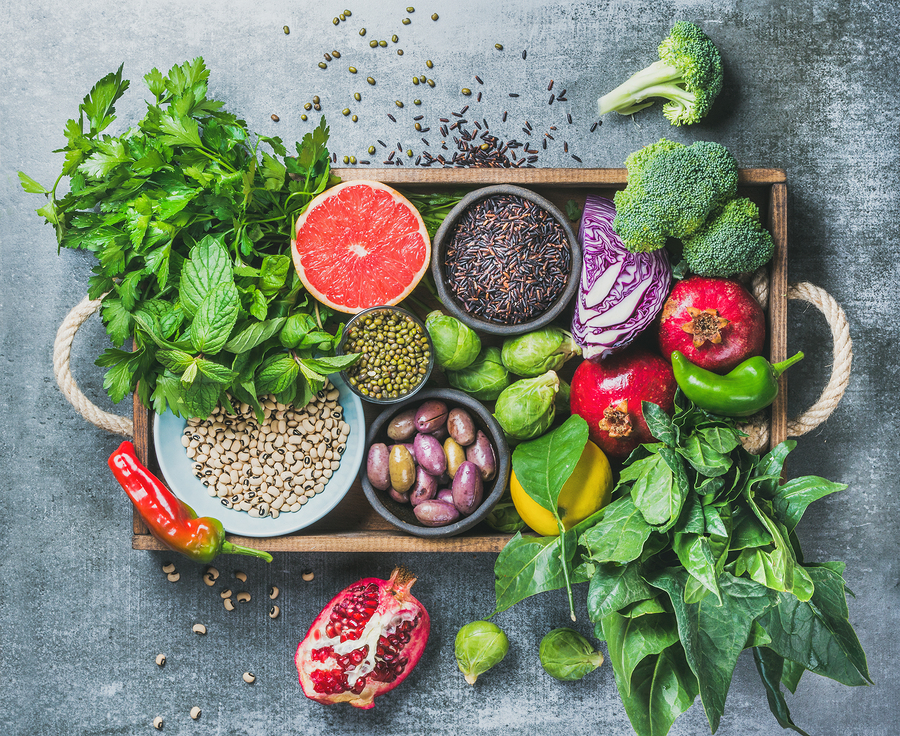- Make It Yourself Lavender Heart-Shaped Bath Bombs!
- 20 Things You Never Knew About “Down There”
- 12 Best Foods For Those Suffering From Arthritis Pain
- 12 Personal Hygiene Mistakes Almost Everyone Makes (Mom Never Told You About #4!)
- 15 Medicinal Plants And Herbs From The Cherokee People
- 12 Mind-Blowing Benefits Of Drinking Coconut Water During Pregnancy
- 12 Outstanding Winter Foods That Won’t Fatten You Up Like A Christmas Turkey
Daily Fiber Benefits: These Are Crucial!
Fiber is increasingly in the news for its important role in digestive and heart health. But how much do you really need? Women should be consuming about 25 grams of fiber per day, and men should consume around 35-40 grams per day. It’s estimated that most developed countries only consume half of their required daily needs of fiber.
There are two types of fiber – soluble and insoluble. Soluble fiber creates a gel that keeps your food in your stomach longer, allowing it to be more fully digested. Soluble fiber assists in regulating cholesterol and blood sugar in the body. Insoluble fiber acts like a bulk mass, moving food stuffs through your digestive system. It helps clean out lingering food or feces and detoxify the digestive tract.
Crucial benefits of daily fiber
- Studies show that a high fiber diet actually fights obesity.
- Its well known that fiber is crucial for digestive health. Fiber keeps your bowels moving, preventing constipation and other digestive ills. It can even combat irritable bowel syndrome (IBS), a serious disease of the digestive system.
- Enough daily fiber can prevent diverticulosis, a condition of the digestive tract, often colon, that creates small pockets through the outer lining of the organ.
- Fiber also fights heart disease.
- Daily fiber helps regulate blood sugar levels, and can significantly help those with diabetes.
- An adequate fiber supply can battle hypertension and even cancer.
- Fiber helps the digestive system by supporting good bacteria, and discouraging bad bacteria. This means better digestion, a stronger immune system, and regular bowel movements.
Foods high in fiber
Most processed foods have added synthetic fibers that are not truly healthy for you. It’s best to get your fiber from natural, whole foods rather than processed foods. Try adding these high fiber foods to your daily diet to ensure you get enough fiber. It’s easy to choose two to three high fiber, all natural foods to squeeze into your menu.
You will find fiber in grain products, however, most are so processed that the real fiber is removed, and synthetic fiber added back in. Generally, whole grain wheat products contain more fiber than white (bleached) products. So, whenever possible, go with whole grain. In addition to grains, there are plenty of plant foods that supply even more fiber, and also have loads of other vitamins and minerals.
- Lima Beans – 13 grams per cup.
- Peas – 9 grams per cup.
- Artichokes – 10 grams per cup.
- Coconut – 7 grams per cup.
- Pears – 10 grams per cup.
- Split peas – 16 grams per cup.
- Black beans – 15 grams per cup.
- Acorn Squash – 9 grams per cup.
- Nuts – 11 grams per cup.
- Lentils – 15.5 grams per cup.
- Chickpeas – 12.5 grams per cup.
- Chia seeds – 10 grams per cup.
- Quinoa – 5 grams per cup.
- Avocadoes – 10 grams per cup.
- Berries – 8 grams per cup.
Continue to Page 2

































